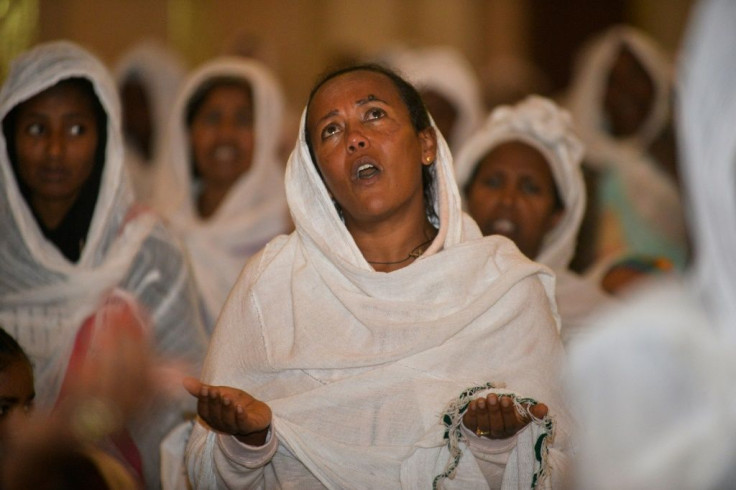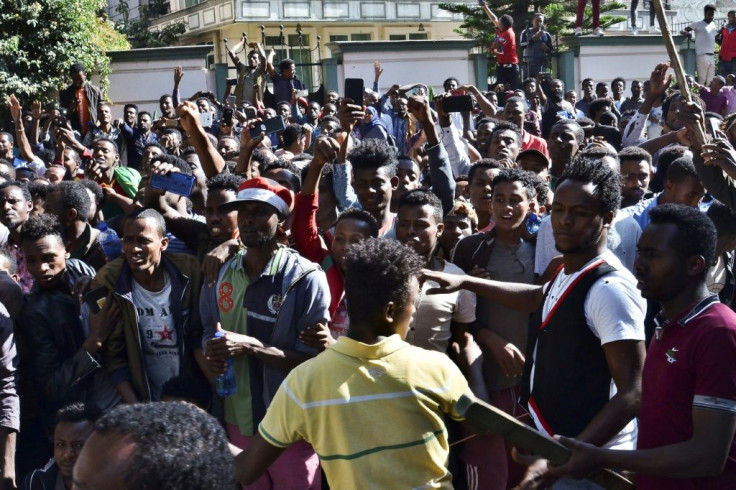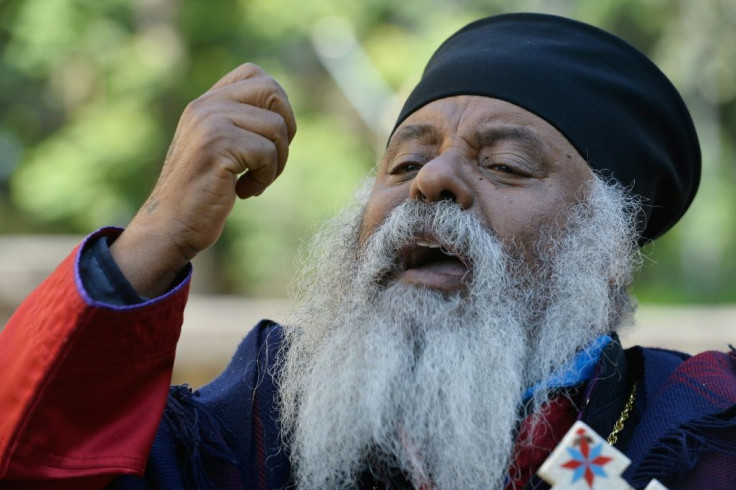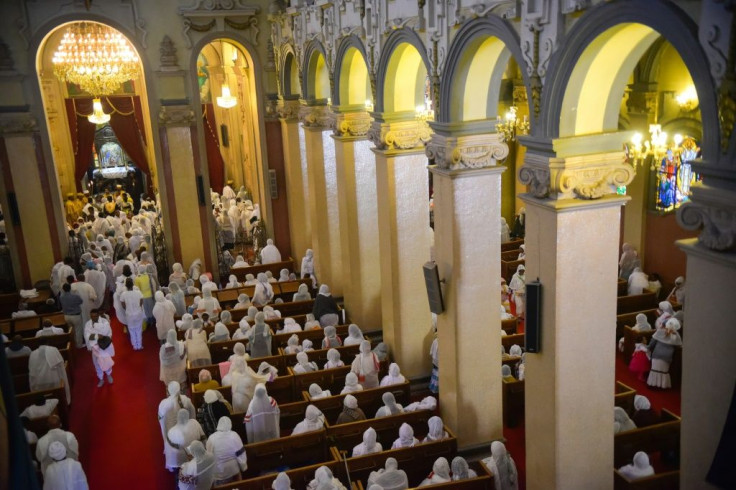Orthodox Ethiopians Criticise PM Abiy Over Deadly Clashes

Ethiopia's influential Orthodox church on Sunday criticised Prime Minister Abiy Ahmed's response to ethnic and religious clashes that have left nearly 70 people dead, saying he was failing to protect its members.
Violence erupted in the capital Addis Ababa and the outlying Oromia region on Wednesday after a prominent activist accused security forces of trying to orchestrate an attack against him -- a claim denied by police.
A police official said Friday that 67 people had died in the clashes in Oromia.
"People are dying and questions are being raised if the government even exists. The people are losing all hope," Father Markos Gebre-Egziabher, a leader in the Orthodox Tewahedo Church, told AFP following a memorial service at Holy Trinity Cathedral in Addis Ababa.
Orthodox Christians make up roughly 40 percent of Ethiopia's 110 million people.

Abiy, the winner of this year's Nobel Peace Prize, waited until Saturday night to react. He vowed to bring the perpetrators to justice and warned that instability could worsen if Ethiopians did not unite.
A church spokesman told AFP on Saturday that 52 Orthodox Ethiopians, including two church officials, had been killed -- a toll that AFP could not independently verify.

Fisseha Tekle, a researcher for Amnesty International, said Saturday that Orthodox churches had been attacked in at least three locations, while there was at least one report of a mosque being targeted.
Church leaders met with Defence Minister Lemma Megersa and Deputy Prime Minister Demeke Mekonnen, state-affiliated Fana Broadcasting Corporate reported Saturday, though it was unclear what came of the meeting.
'God is with us'
At Sunday's memorial service in Addis Ababa, hundreds of worshippers bowed their heads during a moment of silence for the victims.

Father Markos said members of the church were prepared to die in defence of fellow worshippers and church property.
"If they come with machetes, we will go with crosses," he said. "God is with us."
Churchgoer Esubalew Yimam called the government's response and particularly Abiy's statement "disappointing".
"The duty of the government is to protect its citizens, more than development and other things," he said. "Currently we're not seeing that happening."
Esubalew also accused Abiy of failing to stand up to the activist whose allegations against the security forces kicked off last week's unrest.
The activist, media mogul Jawar Mohammed, is widely credited with promoting the protests that swept Abiy to power last year, but he has recently become critical of some of the premier's policies.
"While the people who incite violence are known publicly, the government is turning a deaf ear to these people," Esubalew said. "Unless the silence is broken it will be a troubling time."
A highly divisive figure, Jawar has dismissed suggestions that his rhetoric has contributed to violence, saying the government is responsible.
Both Abiy and Jawar are from the Oromo ethnic group, Ethiopia's largest, and their feud highlights divisions within Abiy's Oromo support base that could complicate his bid for a five-year term when Ethiopia votes in elections currently planned for May 2020.
In an interview with AFP on Friday, Jawar raised the possibility of challenging Abiy at the polls, though he also said he could end up backing Abiy if he changes course.
© Copyright AFP {{Year}}. All rights reserved.





















